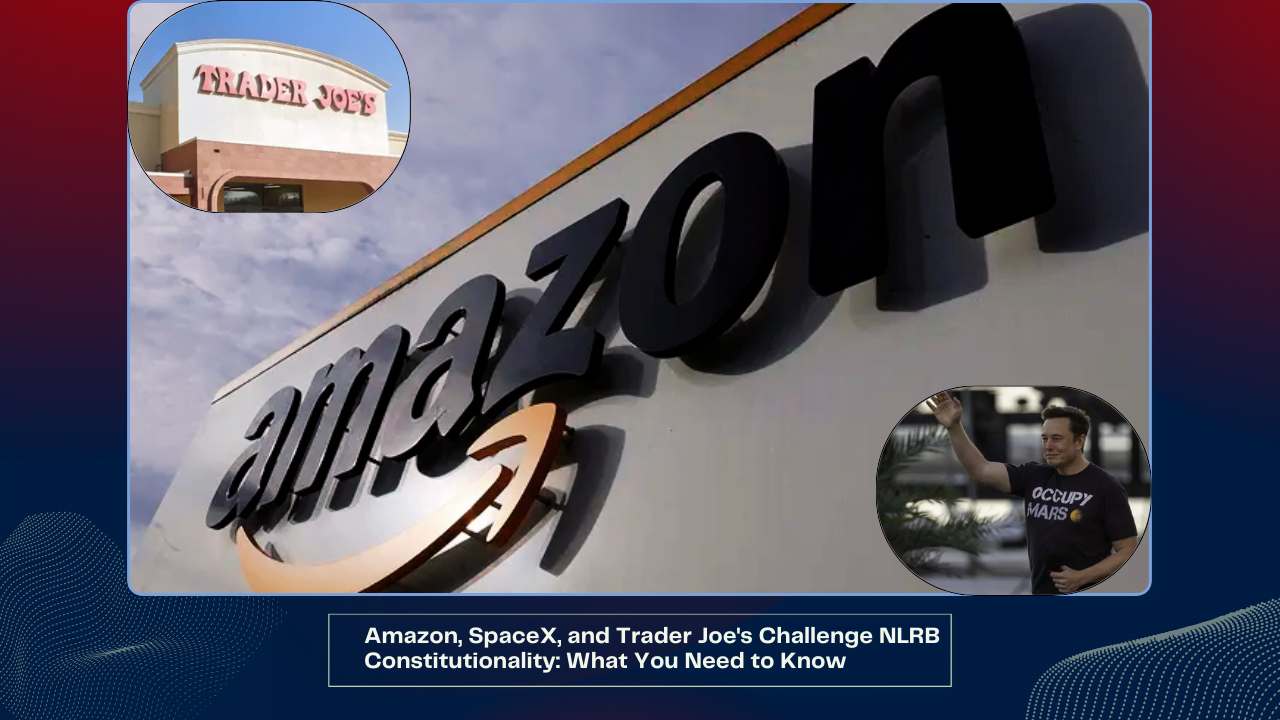
Amazon, SpaceX, and Trader Joe’s Challenge NLRB Constitutionality: What You Need to Know
Amazon.com has joined forces with Elon Musk’s SpaceX and grocer Trader Joe’s in a legal battle challenging the constitutionality of the enforcement proceedings conducted by the National Labor Relations Board (NLRB), the top labor regulator in the United States.
In a filing submitted on Thursday, Amazon argued that the structure of the NLRB violates the Constitution by denying the company’s right to a jury trial. Additionally, Amazon contended that certain limitations regarding the removal of administrative judges and the appointment process of the board’s members, who are selected by the president, infringe upon the separation of powers and are unconstitutional.
This move by Amazon comes amidst a pending case accusing the e-commerce giant of illegally retaliating against workers at a warehouse located in Staten Island, New York, where employees voted to unionize in 2022. Amazon, which has faced over 250 NLRB complaints alleging unlawful labor practices nationwide in recent years, has consistently denied any wrongdoing.
Similarly, SpaceX has made comparable claims against the NLRB. The aerospace company filed a lawsuit shortly after the board accused it of wrongfully terminating eight employees for circulating a letter criticizing founder and CEO Elon Musk. Although the lawsuit was initially filed in Texas, a federal judge recently granted the NLRB’s request to transfer the case to California, where SpaceX is headquartered.
In another instance, Trader Joe’s contested the constitutionality of the NLRB’s structure during a hearing regarding allegations of retaliation against union activities. Notably, two Starbucks baristas seeking to dissolve their unions have raised similar complaints in separate lawsuits.
The NLRB operates through a multi-step process where its general counsel acts as a prosecutor, initiating complaints against employers accused of violating federal labor laws. These cases undergo review by administrative law judges within the agency before reaching the five-member board. Only after the board issues a ruling can a defendant appeal the case to a federal appeals court.
Legal experts anticipate that the arguments regarding the NLRB’s constitutionality may eventually reach the Supreme Court. Concerns have been raised about the potential ramifications of a ruling limiting the NLRB’s enforcement powers, which could adversely impact the bargaining ability of labor unions in negotiations with employers.
As this legal saga unfolds, it underscores the complexities surrounding labor relations and the pivotal role of regulatory bodies like the NLRB in safeguarding workers’ rights and enforcing labor laws.
By addressing these constitutional challenges, the outcomes of these legal battles may have far-reaching implications for labor practices and collective bargaining across various industries, shaping the landscape of labor relations in the United States for years to come.
Related Articles:

